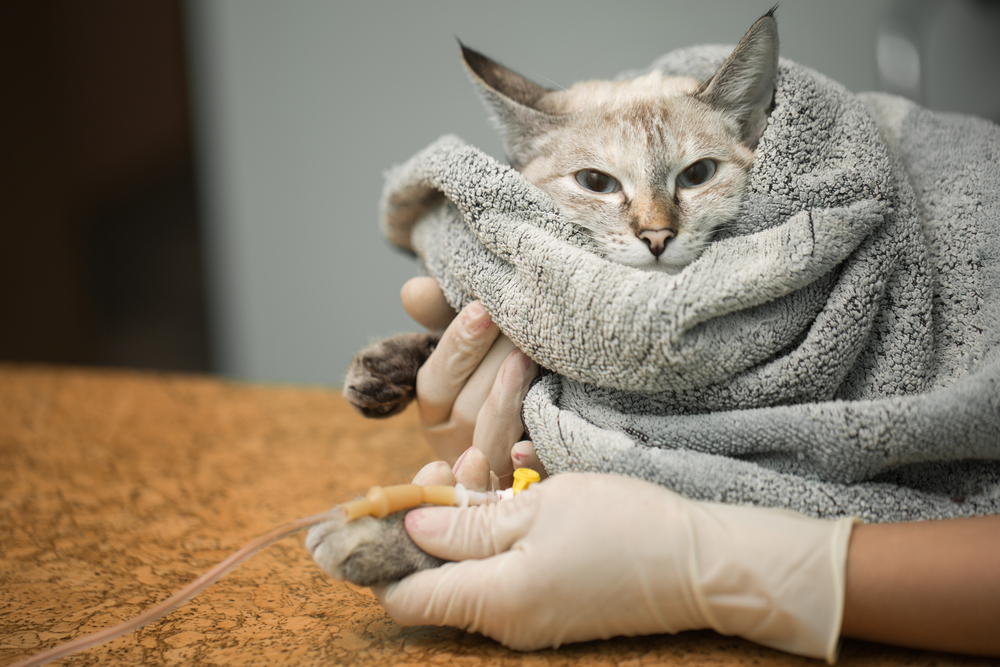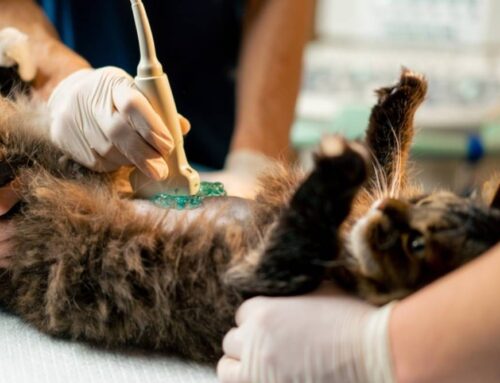When a person ages or develops an incurable condition, family members and caretakers often turn to palliative or hospice care to keep their loved one comfortable and stress-free. These options have not always been available for pets, but thanks to advancements in veterinary medicine, palliative and hospice care are now viable choices for pet owners who want to help lead their companions down a path of calm and comfort.
What are veterinary hospice and palliative care?
Hospice and palliative care describe the therapies and services that healthcare professionals and pet owners provide to companion animals experiencing advanced aging, aggressive conditions, or terminal disease. While these two types of care are similar, a few differences set them apart. Both types aim to provide comfort and pain relief, but palliative care is typically performed in a hospital or clinic setting, whereas hospice focuses strictly on at-home care. Palliative care can be used as an adjunct to curative treatment, such as chemotherapy or radiation for cancer. Hospice care is appropriate when treatment is not a viable option, and the focus has turned to providing the pet relief from suffering in their final days.
Veterinary palliative and hospice care are set apart from human end-of-life care in that pet owners can elect peaceful euthanasia for their pets when all other efforts fail to provide comfort or pain relief.
What is involved in veterinary hospice and palliative care?
The main goals of veterinary end-of-life care involve physical, mental, and emotional relief from painful, and sometimes embarrassing, conditions. In pets suffering from advanced age or a terminal illness, these may include:
- Musculoskeletal pain
- Visceral (organ) pain
- Vomiting or diarrhea
- Urinary or bowel incontinence
- Chronic wounds
- Nutritional problems
These common ailments can be managed in the hospital, at home, or with a combination of the two. With the help of the Village Animal Hospital veterinary team, you can decide what course is best suited for your individual pet, and their diagnosis.
Achieving adequate pain management and symptom relief is a mainstay of veterinary hospice and palliative care. This typically requires a multimodal approach that includes a variety of medications, along with alternative therapies, such as laser therapy, chiropractic care, or acupuncture, to decrease inflammation and accelerate healing. Pet owners are also encouraged to implement various home measures to provide assistance to their struggling pets. These could include placing rugs or mats on slick surfaces, providing ramps into vehicles or in place of stairs, using toe grips or booties for added traction, or installing pet doors for pets with incontinence issues.
Is hospice or palliative care right for my pet?

Choosing hospice or palliative care for your pet is a deeply personal decision, but, in general, for most pets who have received a terminal diagnosis or are reaching advanced age, the end-of-life process can be made easier with the attentive care that these therapies can provide. Some families choose these options when they need a little more time for loved ones to say goodbye. While euthanasia is always a viable option when pain and suffering are imminent, a grim diagnosis does not always mean this is the only immediate solution.
Regardless of your pet’s situation or diagnosis, we strongly encourage you to consider hospice, palliative care, or euthanasia over a “natural death,” which is often neither quick nor painless. Euthanasia allows your pet to pass quickly, peacefully, and in your arms if you choose. Death by a disease process, on the other hand, may cause unnecessary suffering, pain, and trauma, depending on the underlying cause.
We understand these end-of-life decisions are impossibly hard and, of course, each pet’s journey is different. Our veterinary team will educate and guide you along this difficult decision-making path.
At Village Animal Hospital, we are dedicated to your pet’s comfort—regardless of life stage or diagnosis. If you are interested in pursuing hospice or palliative care for your pet, or you have additional questions, don’t hesitate to contact us for more information, or to set up a consultation.








Leave A Comment